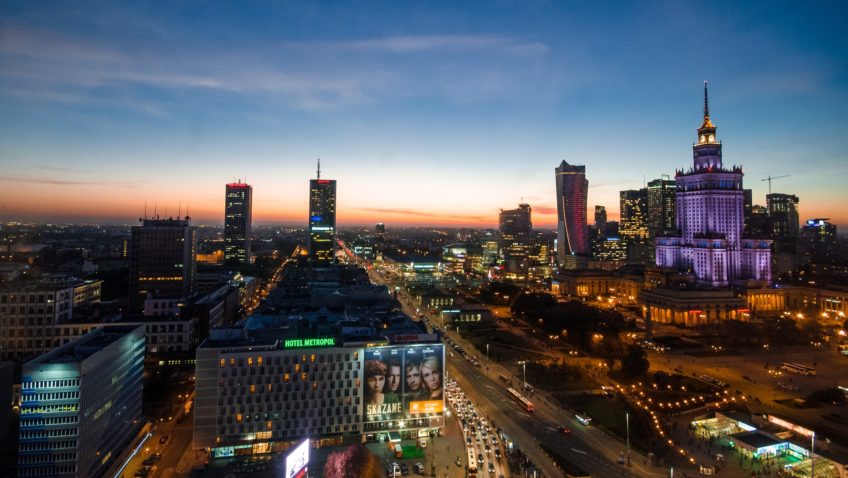Compiled by Eva Jovanova and Hristo Voynov
1. Albania-Greece relations deteriorated after the killing of a Greek-Albanian gunman earlier this week. The ethnic Greek Albanian citizen Kostandinos Kacifa was shot dead by the Albanian police last weekend. The incident sparked two other violent incidents. The first was a clash of groups of Albanians and Greeks in Athens this Monday. The second incident was on Tuesday when a shop in Athens was attacked with home-made firebombs. The Foreign Affairs Ministry of Greece invited the Albanian ambassador to Greece this Monday and discussed the situation. Many Greek organizations organized protests this week, claiming that the killing of Kacifa was unnecessary.
2. Poland may undo some of its judicial reforms after the European Union’s Court of Justice decided that the reforms should be suspended. The decision focused on certain aspects of the reforms, such as forcing judges to retire after a certain age, and so Poland can take some suggestions into account as a way to meet the EU’s requirements, while still keeping less controversial changes. Precisely how Poland approaches this is still uncertain, but the controversy surrounding the reforms was massive, and so this is a positive step in EU/Polish relations if Poland’s ruling party is willing to sacrifice some of its domestic changes.
3. Macedonia is the destination you should keep in mind if you consider doing business in South East Europe, according to the World Bank Doing Business report published this Wednesday. Macedonia is ranked 10th in the report, and together with Albania are the only South-East European countries that improved their ratings from the previous year. The second SEE country for doing business is Slovenia, ranked 40th, followed by Kosovo (ranked 44th).
4. Russia introduced sanctions against 322 Ukrainian citizens, and 68 companies in what it says is an effort to push Ukraine towards a willingness to improve sanctions. Sanctions are often done under this guise, but they are unlikely to work as Ukraine’s relationship with Russia is likely irreparable at this point and Kiev sees acts such as this as an extension of Russia’s hybrid war against Ukraine.
5. Croatia is considering erecting roadblocks for vehicle traffic along the borders with Bosnia and Herzegovina and Serbia, as announced by the Croatian Interior Minister Davor Bozinovic earlier this week. This decision was initially made in May 2014 but hasn’t been implemented yet. The move is supposed to check the migrant flow, to improve border control and surveillance, and to suppress all forms of smuggling.
6. Ukraine’s foreign relations with it’s EU neighbors have been shaky lately, as Hungary has been accusing it of mistreating its Hungarian minority there. This continues this week, as Hungarian MEPs sent a letter to the head of Ukraine’s Rada, or parliament, and proposed turning the letter into a bill criticizing Ukraine. A group of Ukrainian nationalists that published a list of dual citizens only exacerbated tensions. However, Poland once again was also brought into this when its diplomats in Ukraine decided to intervene with Ukraine’s proposal to tear down two Polish monuments in a cemetery in Lviv, known as Lwów in Polish because it was a reminder of the interwar period in which the city was under Polish control. Poland has been more willing to work with Ukraine than Hungary, but has had some serious tension with its Eastern neighbor over the history of the Volhynia massacre.
7. Bosnians renounce their citizenships in return for passports of foreign countries. According to data, since 1996, 86.000 Bosnians gave up their native citizenship to acquire a foreign passport. More than half of them obtained German or Austrian citizenship, countries that do not allow dual citizenship. The next most popular country was Denmark, which changed its regulations in 2015 and it too stopped granting dual citizenship. Right after Denmark, the Norwegian and Slovenian passports were the most popular for Bosnians. Around 1.5 million people who were born in Bosnia and Herzegovina live abroad now, which adds up to approximately 40% of the overall population.
8. Moldova had a strong week in foreign affairs, with President Igor Dodon visiting Russian President Vladamir Putin, while its Prime Minister Pavel Filip met with the President of Belarus, Alexandr Lukashenko, and its Prime Minister, Serghei Rumas. Both visits were focused on building stronger relations, though things may be more complicated than they appear. Dodon has focused on developing stronger ties to Russia while Filip has focused on EU integration, so their priorities on the two trips and relations are likely to have diverged.
9. Kosovo Prime Minister Hashim Thaci met with European Commissioner Johannes Hahn this Wednesday during the Munich Security Conference in Minsk, Belarus. They discussed Kosovo’s visa liberalization and the future of Kosovo-Serbia relations. Mr. Thaci then met with his Serbian counterpart, Ms. Ana Brnabic. This was their first meeting since the proposal of the land swap, as Mr. Thaci has so far only talked to President Vucic. After the meeting, the two sides expressed their hopes that they would find a compromise that would stabilize the region.
10. Post-election politicking continues in Czechia. The Brno coalition has advanced quickly with 3/5ths of the city’s governing seats, which will allow it to pass legislation effectively and present itself as a capable force in future elections if it can maintain its unity. Members of Parliament are also scheduled to start discussions regarding the legal definition of marriage, opening the doors for legalizing gay marriage in Czechia. The main uncertainty is who will lead the country’s senate, as there are many parties and none has a clear lead over the other (especially since the top two parties are tied with 18 seats) to justify one party taking the Senate’s top position.


0 comments